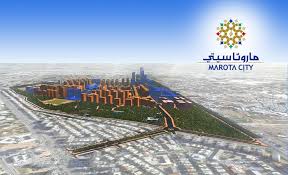The government has completed the executive framework for a post-war national program for Syria for the years 2019-2020. The framework includes assistance to incentivize the return of economic, productive and service activity, part of a government memorandum on the subject (which Al-Watan obtained a copy of) that aims to launch a number of projects to fight poverty and guarantee the provisions for agricultural and industrial production as well as power carriers and to supply basic necessities for citizens in accordance with specific support mechanisms (such as interest rates and production support) with assurances of effective responses to the unilateral coercive measures imposed on Syria.
The memorandum said that the priority is to develop agricultural activity for both plants and animals in order to improve the income of agricultural producers, while taking into account the sustainability of natural resources usage and to develop livestock wealth, provide feed and to increase the volume of livestock products.
Industry comes in second place as part of a program attempting to revive manufacturing industries in the public and private sectors and to increase the competitiveness of national industrial products and bolster the role of the private industrial sector and encourage competitive export industries.
The memorandum supports agricultural industries and strengthening the role of the private sector in industry, which is addressed within the framework of bolstering investment and improving the work environment, as well as reforming the public industrial sector and developing it within the framework of the program for economic public sector reform.
The memorandum said that ensuring primary food security was included in the national executive program for post-war Syria, by improving the provision of food and expanding and stabilizing markets as well as increasing families’ ability to access food and financial access capacities with the aim of improving the food situation for residents.
It is worth noting that this program intersects with other programs, especially with regards to industry, agriculture, transport and the overall economy within several components, most prominently maintaining the strategic food reserve and preparing and developing the infrastructure of silos, mills, bakeries, sale outlets, and so on, as well as monitoring and following up on the needs of the local market in terms of developing intervention tools—especially with regards to foodstuffs and benefiting from cooperative international relationships with friendly countries and donor bodies to plug the gap of needs in basic goods.
According to the memorandum, priorities also include bolstering investment and improving the labor environment, with work underway to bolster the attractive factors in the Syrian economy by removing obstacles for the labor sector with the aim of encouraging the private sector—local and foreign—to invest, and by specifying Syria’s needs in terms of industrial, agricultural and service investment projects, as well as others, whether these are projects in the public sector or joint projects. It also includes planning the distribution of these projects within several components, most prominently specifying the organizational and incentive framework and providing an appropriate atmosphere to encourage investment in Syria, especially in the production sector.
Regarding the participation and investment of public assets, the memo said that the investment efficiency of public assets must be increased to provide more revenues to the state and to participate in funding the establishment of infrastructure and bolstering the role of the private sector and investment opportunities, and risk-sharing within a number of components, represented by defining and specifying the assets subject to investment (in central administration and local administrations) and specifying the incentive framework for the investment system and defining the necessary procedures to put assets into investment.
This article was translated and edited by The Syrian Observer. Responsibility for the information and views set out in this article lies entirely with the author.


